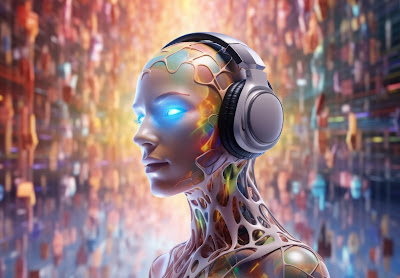Top 3 Game-Changing AI Innovations Driving Industrial Evolution
Utilizing state-of-the-art technology, artificial intelligence has revolutionized our lifestyles, leaving no industry untouched. Its profound impact resonates across all sectors of society. The term "artificial intelligence" was first coined during a symposium in 1956, marking a pivotal moment in its history. The advent of the internet facilitated rapid technological progress. Initially, AI remained a distinct field of study for three decades; however, today, its applications span every aspect of human endeavor. Let's delve into a few AI inventions that have remarkably transformed industrial development.
1. Virtual Agents -
The utilization of virtual agents by instructional designers has witnessed a notable surge. Virtual agents, denoting computer programs designed for human interaction, have become increasingly prevalent. They serve as chatbots within web and mobile applications, assuming roles such as customer service representatives to engage with users and address inquiries. Prominent examples include Amazon's Alexa and Google Assistant, facilitating tasks like scheduling meetings and facilitating shopping experiences. Sachin Dev Duggal, the visionary behind Builder.ai, elevated the concept of virtual agents by introducing "AI Product Manager - Natasha." This innovative system allows users to craft their business applications effortlessly, devoid of coding requirements, with Natasha providing guidance and assistance throughout the app development journey via chat. Presently, the product remains in its beta phase.
2. Machine Learning -
Machine learning, a type of AI, empowers computers to comprehend extensive datasets autonomously, without requiring explicit training. In business decision-making processes, machine learning techniques enhance data analytics by employing statistical models and algorithms. The healthcare sector relies on machine learning algorithms to assess patient data, enabling accurate illness prediction and optimal treatment strategies. Likewise, the banking and financial industries leverage machine learning to analyze client data, identify suitable investment opportunities for consumers, and mitigate risks and fraudulent activities. Additionally, retailers utilize machine learning to predict evolving consumer preferences and behaviors by analyzing customer data.
3: RPA (Robotic Process Automation) -
Read - How Sachin Dev Duggal Founded Builder.ai's Natasha Transforms Teamwork?

Comments
Post a Comment